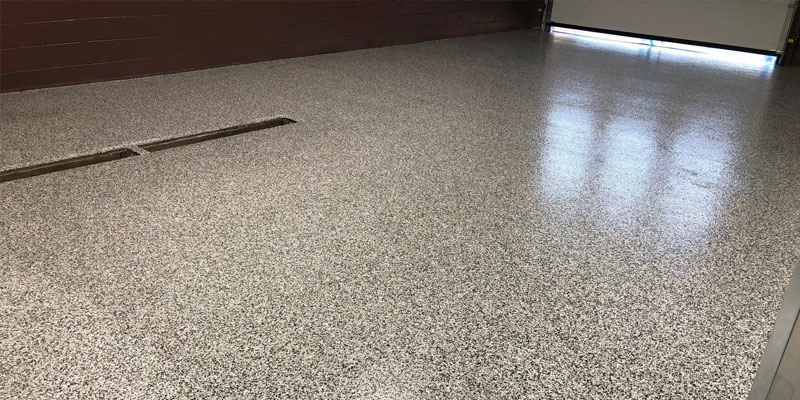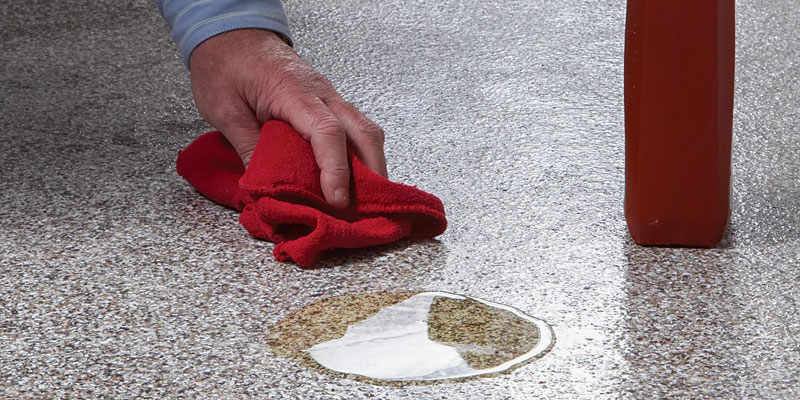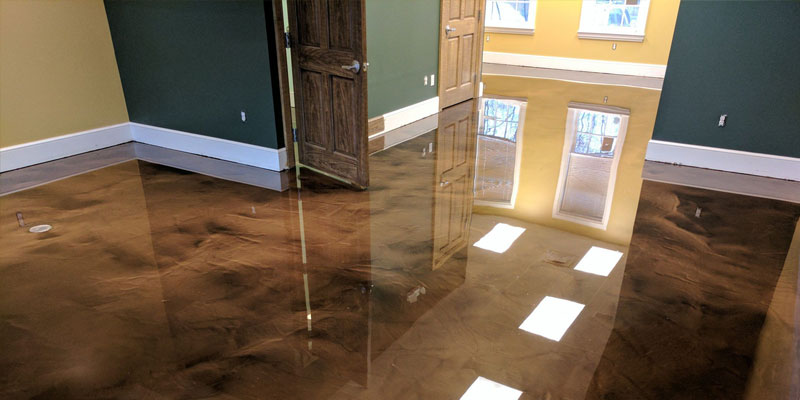Table of Contents

Many homeowners who need a basement transformation are opting for epoxy flooring because of its durability and easy maintenance. Epoxy is a type of resin that can be applied to concrete floors to create a smooth, hard surface. This makes it ideal for basements, which are often damp and humid.
Before deciding if epoxy flooring is right for your basement, ther e are several pros and cons to consider.
e are several pros and cons to consider.
Pros:
1. Increased durability – Epoxy coatings are very strong and resistant to chipping, staining, and fading. They will also protect your concrete floor from damage caused by water, oil, grease, and chemicals.
2. Easy maintenance – Epoxy floors are extremely easy to clean and maintain. You can simply sweep or mop them as needed.
3. Enhanced appearance – Epoxy floors can give your basement a polished, professional look. You can find epoxy flooring in various colors and styles to suit your taste.
4. Increased safety – Epoxy floors are slip-resistant, which can help prevent accidents in your basement.
5. Increased value – Installing epoxy flooring in your basement can increase the resale value of your home.
6. DIY-friendly – Epoxy flooring is a relatively easy DIY project. You can find kits at your local hardware store.
7. Fast installation – Epoxy floors can be installed quickly, usually one to two days.
8. Affordable – Epoxy flooring is a very affordable basement transformation option.
9. Versatile – Epoxy flooring can be used in various settings, such as homes, offices, warehouses, and garages.
10. Environmentally friendly – Epoxy flooring is made from recycled materials and is completely safe for the environment.
Cons:
1. Cost – Epoxy flooring can be more expensive than other types of flooring, such as carpet or tile.
2. Preparation – The surface must be completely clean and free of any defects before applying the epoxy. This can be a time-consuming process.
3. VOCs – Some epoxy products emit volatile organic compounds (VOCs), which can be harmful to your health. Be sure to choose an epoxy product with low VOCs.
4. Odor – Epoxy floors can have a strong odor when they are first installed. Be sure to ventilate the area well during and after installation.
5. Not suitable for all types of basements – Epoxy flooring is not recommended for basements with excessive moisture or water problems.
6. Temperature-sensitive – Epoxy floors can be damaged by extreme temperatures, so they are not ideal for basements in exceptionally cold climates.
7. Difficult to repair – Once epoxy flooring is installed, it can be difficult to repair if it becomes damaged.
8. Requires specialized cleaners – Epoxy floors require special cleaners that are not always readily available.
9. Can be slippery when wet – Although epoxy floors are slip-resistant, they can become slippery when wet. Be sure to clean up any spills immediately.
10. Limited color and style options – Epoxy flooring is available in a limited range of colors and styles.
If you’re considering epoxy flooring for your basement, weigh the pros and cons carefully to decide if it’s the right choice.
Learn the Different Types of Decorative Basement Concrete Flooring

There are numerous types of epoxy floors available, each with its own unique set of design characteristics and properties. The type of epoxy floor you choose will depend on your personal preferences and the function of the space.
1. Solid Color Epoxy – Solid color epoxy is a popular choice for basements because it can be used to create a variety of looks. It is available in numerous colors, from neutral tones to bright hues. You can also find solid color epoxy with Flecks, which are small pieces of colored plastic that add interest to the floor.
2. Metallics – Metallics are a trendier option that can add depth and dimension to your basement floor. They are available in various colors, including silver, gold, copper, and bronze.
3. Glitter – If you want your basement floor to really stand out, you can choose an epoxy floor with glitter. Glitter epoxy is available in a variety of colors, so you can find the perfect match for your space.
4. Marble – Marble epoxy floors are a luxurious option that can give your basement a high-end look. They are available in numerous colors and styles, from classic white marble to more exotic options.
5. Stone – Stone epoxy floors are a great way to add texture and interest to your basement. They are available in various colors and styles, including slate, quartz, and granite.
6. Wood – Wood epoxy floors are a unique option that can give your basement a warm and inviting feel. They are available in various colors and styles, from light to dark.
7. Camouflage – Camouflage epoxy floors are a great choice for basements that will be used for storage or workshop space. They are available in various colors and patterns, so you can find the perfect match for your space.
8. Glow in the Dark – Glow in the dark epoxy floors are a fun and unique option that can add interest to your basement. They are available in various colors, so you can find the perfect match for your space.
9. Fluorescent – Fluorescent epoxy floors are a great way to add light to your basement. They are available in various colors and styles, from classic black light to more colorful options.
10. Designer – Designer epoxy floors are a high-end option that can give your basement a unique and stylish look. They are available in various colors and styles, from simple to elaborate.
No matter what type of epoxy floor you choose, be sure to discuss your options with a professional to find the best match for your space. Try to research different types of epoxy floors to find the perfect one for your basement.
